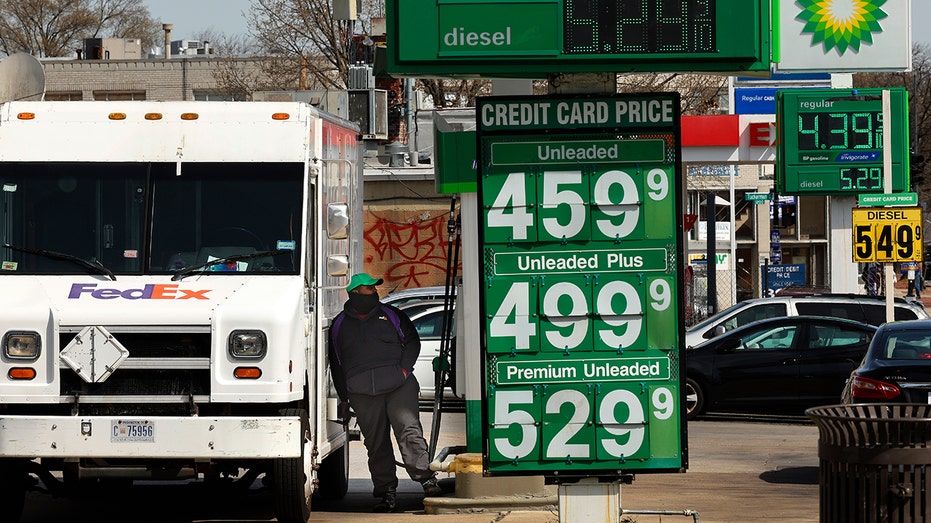March inflation report may show another rapid price spike
Producer prices are expected to jump 8.4%
Inflation will peak this quarter: Crossmark Global Investments CIO
Crossmark Global Investments CIO Bob Doll argues a main reason is because some of the 'supply shortage problems' are starting to be solved and notes that even if inflation starts to go down, it will still be at 'unacceptable levels.'
The newest inflation data out this week is expected to show another jaw-dropping figure as the Russian war in Ukraine sent oil and gas prices spiraling higher.
The Labor Department is releasing the highly anticipated consumer price index on Tuesday morning, providing a fresh look at just how hot inflation ran in March. Economists expect the gauge — which measures a basket of goods including gasoline, health care, groceries and rents — to show that prices surged 8.4% in March from the year-ago period, toppling the previous month's 40-year high of 7.9%.
FED RAISES INTEREST RATES FOR FIRST TIME IN 3 YEARS, PROJECTS 6 MORE HIKES AS INFLATION SURGES
It would be the fastest increase in consumer prices since January 1982, when inflation also hit 8.4%.
Rising inflation is eating away at strong gains and wages and salaries that American workers have seen in recent months — bad news for President Biden, who has seen his approval rating plunge as consumer prices rose. The White House has blamed the price spike on supply-chain bottlenecks and other pandemic-induced disruptions in the economy, while Republicans have pinned it on the president's massive spending agenda.
The Biden administration is already in damage control mode ahead of the newest inflation data, with press secretary Jen Psaki telling reporters on Monday that the White House expects to see that inflation accelerated again in March as a result of the Ukraine war and the ensuing sanctions on Russia.
"We expect March CPI headline inflation to be extraordinarily elevated due to Putin’s price hike," Psaki said.
The data will also have major implications for the Federal Reserve, which has taken a more hawkish approach to fighting inflation in recent months: Policymakers raised rates by a 0.25 percentage point in March, and have since signaled support for a faster, half-point increase at their May meeting.

Gasoline prices hover around $4.00 a gallon for the least expensive grade at several gas stations in the nation's capital on April 11, 2022 in Washington, DC. (Chip Somodevilla/Getty Images / Getty Images)
"Many participants noted that one or more [0.5-point] increases in the target range could be appropriate at future meetings, particularly if inflation pressures remained elevated or intensified," the Fed minutes from its March meeting said.
The biggest question now is whether central bank officials can successfully tame inflation and stabilize prices without triggering an economic recession. Raising the federal funds rate tends to create higher rates on consumers and business loans, which slows the economy by forcing them to cut back on spending.
Chairman Jerome Powell has pushed back against concerns that further tightening by the central bank will trigger a recession and has maintained optimism that the Fed can strike a delicate balance between taming inflation without crushing the economy.
GET FOX BUSINESS ON THE GO BY CLICKING HERE
"The probability of a recession in the next year is not particularly elevated," Powell told reporters during the Fed's March meeting, citing the strong labor market, solid payroll growth and strong business and household balance sheets. "All signs are that this is a strong economy and one that will be able to flourish in the face of less accommodative monetary policy."





















